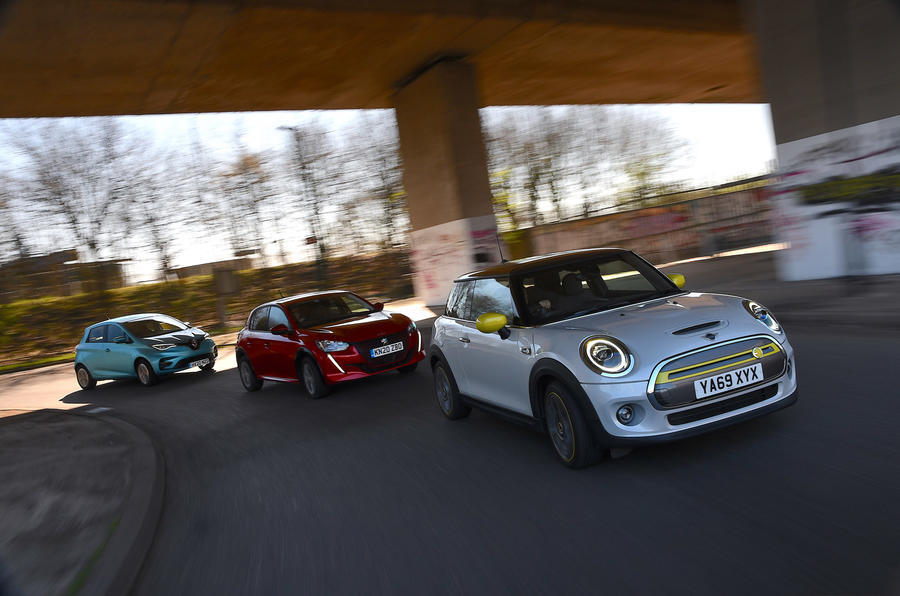The government has downsized the financial incentive package offered to EV owners in the UK, reducing the 'plug-in car grant' from £3000 to £2500 and lowering the upper price limit for eligible vehicles.
Buyers of electric cars costing more than £35,000 will now no longer qualify for an incentive, which was previously available on vehicles costing up to £50,000. The changes come into effect immediately from today (18 March).
The move has been made, according to the government, to "reflect a greater range of affordable vehicles available", and to help funding go further as more drivers make the switch to electric cars.
The government said: "This will mean the funding will last longer and be available to more drivers. Grants will no longer be available for higher-priced vehicles, typically bought by drivers who can afford to switch without a subsidy from taxpayers."
Since 2019, the government claims, the number of sub-£35,000 pure-electric cars on the market has increased by "almost 50%". It estimates that more than half the models currently on the market will remain eligible for the £2500 support package, highlighting "spacious family cars" including the MG ZS EV and Hyundai Kona Electric - although the Kona Electric is now eligible exclusively in entry-level 39kWh form.
MG itself has pledged to continue offering the full £3000 dicsount on all EVs ordered before the end of the month, as a gesture of goodwill to any prospective customers who had decided to buy an MG with the previous grant amount in mind.

Until this time last year, all electric cars were eligible for a £3500 government grant. It was reduced by £500 and restricted to sub-£50,000 cars as part of the 2020 budget, at which point funding was said to have been secured to run the scheme until 2022-2023.









Join the debate
Add your comment
Lets totally honest, its £500, or less than half of one monthly payment (£1200) that Audi are asking for a subscription for an eTron, in the grand scheme of things its chicken feed. Its an amount these manufacturers could easily match or continue to offer as MG are going to. Perhaps if these manufacturers offered to match the government £2500 grant, thus making it £5k I might have more sympathy.
All the milionaires have had the benefit of this grant against their Teslas and Jaguars, now that there are cars like the C4 and ID3 coming out, we can't have the majority benefiting can we? Don't go saying it can't be afforded, the £ has no intrinsic value it is Fiat money, this is the attitude which has increased inequality. When will people instead of saying they can't have some of that start shouting give me some of that. I'm dismounting my soap box now.
I agree. People need to calm down, these are minor tweaks, the world won’t collapse overnight. Taxpayers cash should not be used to subsidise anyone able to afford a car worth over £35k. Reducing the threshold and level of grant means the pot will go further and thereby help more families into the lower cost EVs. If the reduction of £500 stops someone from buying a new EV then they probably weren’t serious anyway. Mike Hawes and the SMMT will always find something to moan about.